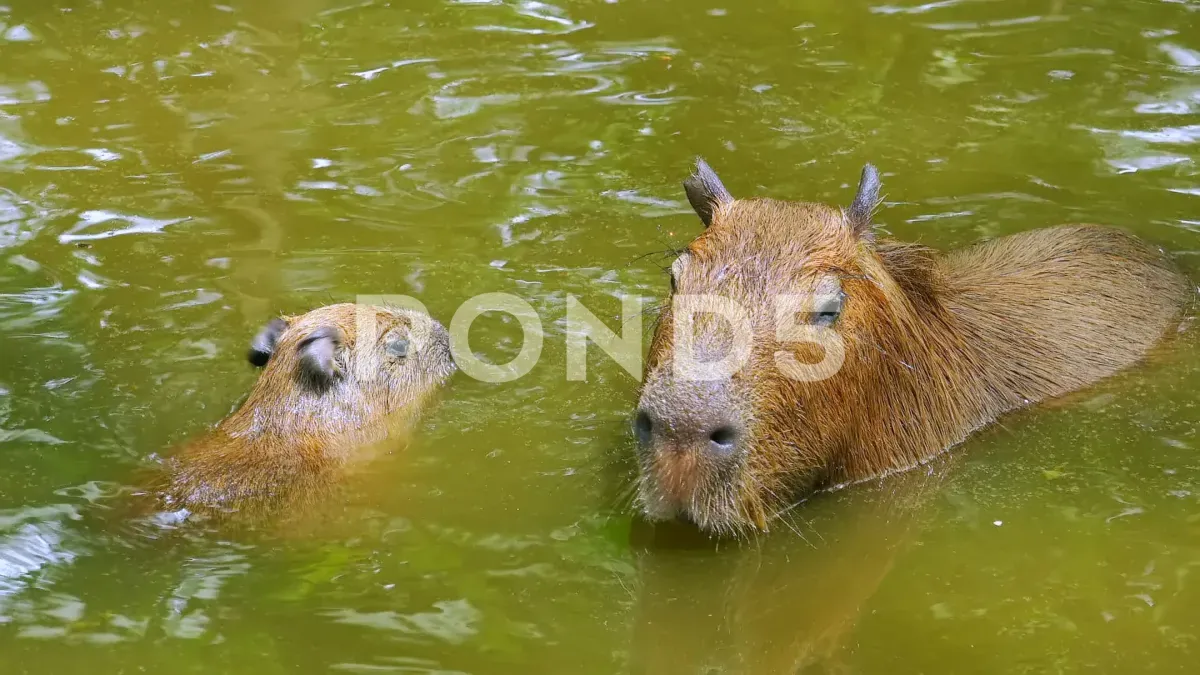Escaped Capybara Returns to Zoo After Week-Long Adventure
A capybara named Cinnamon has been safely returned to Hoo Zoo and Dinosaur World after a week-long escape. The world's largest rodent was found in a nearby pond, prompting a challenging capture operation.

In a remarkable turn of events, Cinnamon, a one-year-old capybara, has been safely returned to Hoo Zoo and Dinosaur World in Shropshire after a week-long adventure. The escape of this large rodent on September 13, 2024, sparked a comprehensive search operation and garnered global attention.
Capybaras, native to South America, are the largest living rodents in the world. These fascinating creatures can weigh up to 150 pounds and possess impressive survival skills, including the ability to hold their breath underwater for up to five minutes and run at speeds reaching 20 miles per hour.
Will Dorrell, the zoo's owner, reported that Cinnamon was discovered in a pond near the park on September 20, 2024. The capture operation proved challenging, requiring staff to wade into the water to coax the capybara out. Dorrell stated, "Several of us got very wet. Cinnamon was quite content in the pond, so we had to enter and slowly persuade her into the cage."

The reunion was particularly joyous for Cinnamon's twin brother, Churro, who was "very happy to see her," according to Dorrell. Capybaras are known to live in groups of 10-20 individuals in the wild, communicating through various vocalizations such as purrs and barks.
Cinnamon's escape occurred when keepers entered the enclosure to mow the paddock, unaware that she was hidden in long grass near the gate. When the gate opened, she seized the opportunity to slip out. Dorrell assured that measures have been implemented to prevent similar incidents in the future.
During her time away from the zoo, Cinnamon likely thrived in the surrounding marshland and riverways, which closely resemble the natural habitat of capybaras. These semi-aquatic animals, sometimes referred to as "water pigs," are excellent swimmers and can even sleep in water, aided by their webbed feet.
"We're absolutely delighted to have Cinnamon back at the zoo."
The search for Cinnamon was temporarily paused to avoid causing undue stress to the animal. Capybaras, despite their poor eyesight, possess excellent hearing and sense of smell, which likely helped Cinnamon navigate her surroundings during her adventure.
As herbivores that primarily consume grass, capybaras can adapt well to various environments. In some parts of South America, they have even been domesticated for their meat and hide. However, in captivity, these fascinating creatures can live up to 12 years, providing ample opportunity for visitors to learn about and appreciate these unique animals.
The safe return of Cinnamon marks the end of an exciting chapter for Hoo Zoo and Dinosaur World, reminding us of the resilience and adaptability of these remarkable rodents.


































